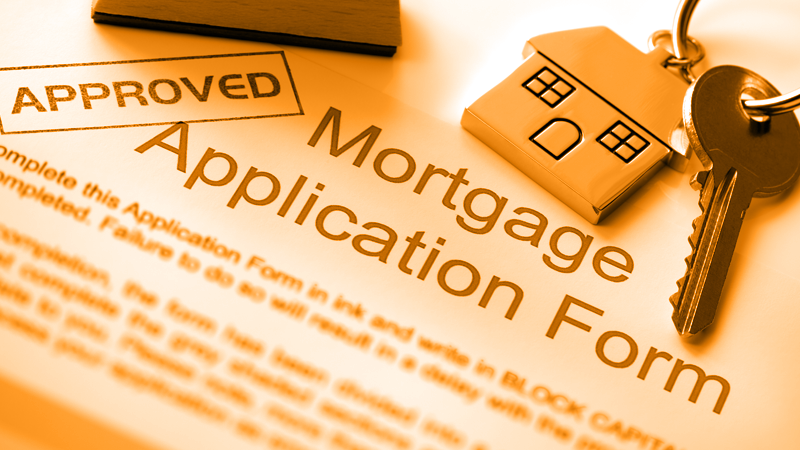Bankruptcy does carry negative connotations and although bankruptcy is very serious and impacts a credit record, it is not a permanent state.
This guide will discuss the duration of time that bankruptcy will affect a credit history and explore the options to obtain a mortgage following the bankruptcy.
What is Bankruptcy?
Bankruptcy is one of a number of types of personal insolvency. Bankruptcy can be used as a tool to clear debts and credit issues however it does come with some strong consequences.
When a person is declared bankrupt their financial affairs are delegated to a Trustee of Official Received who will draft a Statement of Assets and Liabilities to establish how much can be repaid to creditors.
There are positives and negatives when considering bankruptcy. The process will protect the person from the stresses of being chased for debt.
However, there are long term consequences associated with bankruptcy including that some professions cannot practice following being made bankrupt.
The bankruptcy would be recorded on a personal credit file including details of whether it is active or discharged and the date the bankruptcy commenced.
In addition, the bankruptcy will be recorded on the Bankruptcy & Insolvency Register which can be viewed by anyone, free of charge and therefore could impact future employment, the ability to rent a property or arrange to apply for future borrowing.
When Can a Mortgage be Applied for Following Bankruptcy?
A discharge following bankruptcy will typically complete a year following the event, however, the record of bankruptcy will remain on your credit history for a further six years.
It is generally a waiting game as to when to apply for a mortgage, especially within the immediate years following a bankruptcy as an applicant would be deemed too much of a risk to lenders.
However, by the fourth or fifth year following a bankruptcy an applicant may be able to obtain a mortgage depending on their other personal circumstances such as meeting affordability checks, levels of deposit and records of income and expenditure.
Which Mortgage Lenders Accept Bankrupts?
There is no list of lenders that are guaranteed to accept a mortgage application after a bankruptcy.
The majority of lenders review and accept mortgages from those who have had discharged bankrupts on a case by case basis.
Lenders will consider a variety of different factors including your income, expenses, credit history and overall affordability.
There are certain steps you can take to improve your chances of getting a mortgage approved.
You should strongly consider seeking the assistance of a mortgage broker if you have experienced financial difficulties in the past.
A broker will be best placed to advise on which specialised lenders would be appropriate and the likelihood of being accepted for a mortgage.
Can I get a mortgage after declaring bankruptcy and being discharged?
Getting a mortgage approved after being discharged from bankruptcy can make the process more difficult, but certainly not impossible.
Typically, high street lenders will be reluctant, but there is usually a range of specialised lenders available.
As well as the number of lenders available being limited, you will usually find that the mortgage deals offered are less competitive since a bad credit mortgage is considered a higher risk to the lender.
For this reason, mortgages offered after a bankruptcy tend to be offered at a higher interest rate than average and many may also request a larger deposit than usual.
How long after bankruptcy can I get a mortgage?
During a period of bankruptcy, it isn’t unusual to have restrictions imposed on your borrowing.
Bankruptcy terms dictate that you cannot apply for a mortgage until you have been officially discharged.
This usually takes up to 12 months depending on the court’s decision. The more time that has elapsed, the more chance you have of a lender approving you for a mortgage.
Post-bankruptcy, the point at which you will become eligible to apply for a mortgage differs from lender to lender.
If you apply for a mortgage immediately after the point of discharge then you will need to meet very strict criteria, have a substantial deposit, and find yourself subject to higher fees and rates.
As more time passes, the bankruptcy becomes less relevant from the perspective of a lender.
After 4 or 5 years, a lender will most likely see you in the same light as everyone else but more so if your credit history has been clear of any issues since discharge.
You will also find that more lenders in the market will consider an application at higher loan to value rates, the longer you have been discharged.
For example, if you have been discharged over 4-5 years and have kept a good credit record, you may be able to borrow up to as much as 90-95% LTV.
If eligible, these lenders may be able to offer you more competitive rates too.
If you have been recently discharged, then you will find it significantly harder but can still obtain a mortgage through at least a 25% deposit will be required in a lot of cases.
If you’re unsure about your eligibility, please get in contact with one of our specialist advisors to discuss your situation.
Improving a Credit Score
It is highly recommended that while an applicant is waiting for the time to pass following a bankruptcy that they keep a clean credit record, ensuring that all payments are made on time.
In addition, it would be worthwhile taking the time to improve your credit rating by undertaking some simple steps as follows:
- Check your credit report – Request a free report from a reputable credit referencing agency and review the content. If any errors are contained, either contact the company directly or the credit reference agency with whom the report was run to investigate and make the necessary corrections.
It is also worthwhile checking any financial associations listed, and requesting the removal of any old information, such as links to ex-partners.
Also, always remember to cancel a free trial if started to obtain a free credit report.
- Register to vote if not already done so – By registering to vote you will be added to the electoral roll, which is another record that lenders can check to confirm the identity and address of applicants.
- Apply for credit wisely – Every credit application will leave a mark on your credit file, which other lenders can see, including the history of any denied credit applications.
Therefore there will be a tricky balance between building a credit score and holding off any applications before making a mortgage application.
One approach to manage applications is to use tools that show the likelihood of being granted credit, without performing a credit search.
This provides the applicant with insight into their creditworthiness without marking their credit file.
However, it would be recommended to seek independent financial advice before making any credit applications to discuss the options, benefits and disadvantages during the critical time before making a mortgage application.
- Keep credit usage low – When applying for new credit, lenders will assess the number of accounts of your credit file, not only those with any outstanding balances but also the value of available credit. The optimum level is to keep within 50% of the total credit available, representing that you are successfully managing your finances.
- Build a good credit history – Building a positive credit file shows that you can borrow responsibly, make regular and appropriate payments and remain within the designated credit limit. There are financial products available that are aimed at those who are in the process of recovering their credit file, such as ‘credit builder’ credit cards. Often the interest rates will be very high therefore they are designed for the balance to be paid off in full every month to enable customers to document a pattern of responsible repayments on their credit file.
Deposits for Discharged Bankrupts
Lenders who are prepared to offer mortgages to those with a less than perfect credit history will likely seek to mitigate their risks by request higher deposits.
Typically, applicants with a clean credit history could achieve a 95% mortgage and therefore only require a 5% deposit.
However, these ratios are unlikely to be seen for someone with a bankruptcy listed on their credit file.
Depending on the duration of time that has passed following a bankruptcy, a lender could stipulate that a deposit of between 15% and 25% is provided.
Should this level of deposit be out of reach, there could still be options available such as a gifted deposit from a close family member or a guaranteed mortgage.
Mortgages for discharged bankrupts summary
Although bankruptcy is a serious decision, the consequences of being declared bankrupt do not last forever!
Should you be rebuilding your credit history with the objective of seeking a mortgage, it would be highly recommended that independent financial advice is sought.
This will enable any changes to a credit file to impact a credit score and to explore the options available on the market to seek a mortgage.
High street lenders will often refuse a mortgage application from someone that has previously been bankrupt even after the discharge, however, there are specialised lenders that would analyse an application further before making a decision.
Financial advisors will be best placed to advise on which specialised lenders would be appropriate and the likelihood of being accepted for a mortgage.
Call us today on 03330 90 60 30 or feel free to contact us. One of our advisors will be happy to talk through all of your options with you.

















